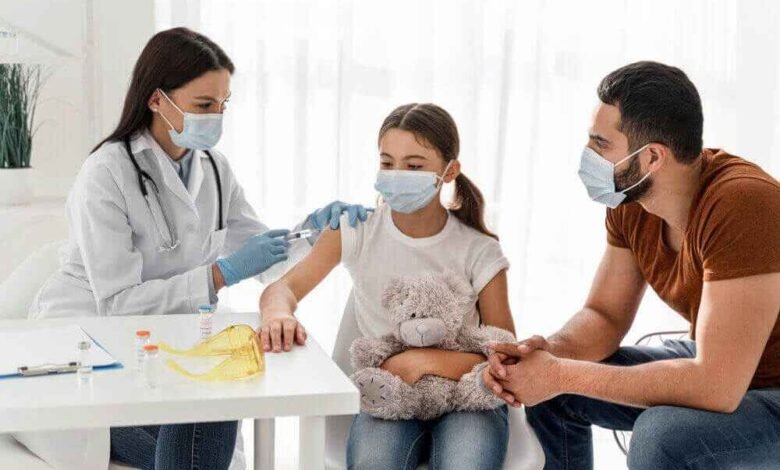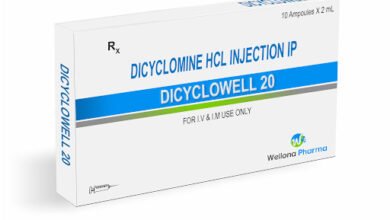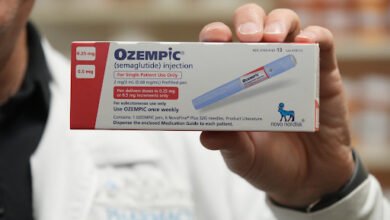Importance of RSV Vaccine for Adults And Babies

Respiratory syncytial virus (RSV) is a common respiratory virus that can cause mild symptoms in most people. However, for infants, older adults, and individuals with certain health conditions, RSV can lead to severe respiratory illness, hospitalization, and even death. To combat the impact of RSV vaccine for adults and babies. In this blog, we will explore the importance of RSV vaccination, the recommended vaccines, and their effectiveness in preventing RSV-related complications. Let’s dive in and understand who should get RSV vaccine? It’s crucial for the well-being of both adults and babies.
Understanding RSV and Its Impact
RSV is a highly contagious virus that primarily affects the respiratory system, particularly the lungs. While it usually manifests as mild cold-like symptoms in healthy individuals, it can have severe consequences for certain vulnerable populations. Infants up to 12 months of age, especially those younger than 6 months, and children born prematurely or with chronic lung or heart disease are at an increased risk of developing severe RSV disease. Similarly, older adults, individuals with chronic medical conditions like heart disease or lung disease, weakened immune systems, or those residing in nursing homes or long-term care facilities are also more susceptible to severe RSV illness.
How RSV Spreads?
RSV is primarily spread through direct contact with the virus, such as respiratory droplets from coughs or sneezes of infected individuals. It can also be contracted by touching contaminated surfaces and then touching the face without proper hand hygiene.
Symptoms of RSV in Adults
- Runny nose
- Decreased appetite
- Coughing
- Sneezing
- Fever
- Wheezing
RSV Symptoms in Kids
- Irritability
- Decreased activity
- Pauses in breathing
Common Side Effects of RSV Vaccine in Babies
Side effects of RSV vaccine in babies & adults may include:
- Mild and temporary reactions
- Redness or swelling at the injection site
- Low-grade fever
- Irritability or fussiness
- Decreased appetite
- Tenderness at the injection site
- General discomfort
- Rare severe allergic reactions, e.g Allergic asthma (contact healthcare provider if observed)
The Importance of RSV Vaccination for Adults
Who Should Get RSV Vaccine?
Adults aged 60 and older are recommended to receive a single dose of the RSV vaccine for adults. While RSV infections can still occur in this age group, the vaccine significantly reduces the risk of severe RSV-related complications. Adults with chronic medical conditions, such as heart or lung disease, weakened immune systems, or residing in nursing homes or long-term care facilities, are particularly susceptible to severe RSV illness and should consider vaccination.
RSV Vaccines for Adults
Currently, there are two RSV vaccines for adults:
These vaccines work by boosting the body’s immune response to RSV, providing protection against severe respiratory illness. The Abrysvo vaccine has shown to reduce the risk of developing RSV-associated lower respiratory tract disease by 82.6% and severe RSV-associated disease by 94.1%. On the other hand, the Arexvy vaccine reduces the risk of lower respiratory tract disease by 65.1% and severe disease by 88.9%. Both vaccines have demonstrated significant effectiveness in preventing RSV-related complications.
Consulting with Your Healthcare Provider
Before receiving the RSV vaccine, it is essential to consult with your healthcare provider. They will evaluate your individual characteristics, values, and preferences to determine if the vaccine is suitable for you. Additionally, they can provide guidance on the timing and availability of the vaccine in your local area. It is important to have open and informed discussions with your healthcare provider to make the best decision regarding RSV vaccination.
Risks and Reporting Adverse Reactions
As with any vaccine, there is a potential risk of a vaccine reaction. While serious reactions are rare, it is crucial to be aware of the signs of a severe allergic reaction, such as hives, swelling of the face and throat, difficulty breathing, rapid heartbeat, dizziness, or weakness. If you experience any of these symptoms, it is vital to seek immediate medical attention. Adverse reactions should be reported to the Vaccine Adverse Event Reporting System (VAERS), either by your healthcare provider or by visiting the VAERS website or contacting their helpline. Reporting reactions helps ensure the ongoing safety and monitoring of vaccines.
Protecting Babies from RSV: The Importance of Maternal Vaccination
The Need for RSV Protection in Infants
Infants, especially those under 6 months of age, are at high risk of severe RSV disease. This is particularly true for premature infants or those with chronic lung or heart disease or weakened immune systems. Given the potential complications and impact on infant health, it is crucial to take preventive measures to protect them from RSV.
Maternal RSV Vaccination: A Powerful Tool
Maternal RSV vaccination has emerged as a powerful tool in preventing severe RSV disease in infants. The CDC recommends a single dose of the RSV vaccine for pregnant individuals between weeks 32 and 36 of pregnancy. By receiving the vaccine during this period, pregnant individuals can pass on protective antibodies to their babies, providing them with passive immunity against RSV. The timing of vaccination is important, as it aligns with the peak RSV season in most parts of the United States.
Choosing the Right RSV Vaccine for Pregnant Individuals
When it comes to maternal RSV vaccination, it is important to note that Abrysvo is the only RSV vaccine recommended for use in pregnant individuals. GSK Arexvy is not recommended for this population. Pregnant individuals should consult with their healthcare provider to determine the appropriate RSV vaccine and discuss the benefits and potential risks associated with vaccination during pregnancy.
Timing and Administration of Maternal RSV Vaccination
For most of the United States, maternal RSV vaccination is recommended to be administered from September through January. However, the timing may vary in certain locations, such as the territories, Hawaii, Alaska, and parts of Florida, where RSV season differs. It is crucial to follow the guidance of healthcare providers and local authorities regarding the timing and availability of maternal RSV vaccination. In most cases, the RSV vaccine can be administered alongside other routine vaccines.
The Role of Nirsevimab: A Breakthrough in RSV Prevention for Babies
Nirsevimab and its Mechanism of Action
Nirsevimab, also known by its brand name Beyfortus, is a breakthrough monoclonal antibody immunization designed to prevent RSV-associated lower respiratory tract disease in young children. Unlike traditional vaccines, which stimulate the body’s immune response, nirsevimab provides direct protection by delivering antibodies that neutralize RSV. This novel approach has shown promising results in reducing the risk of severe RSV infection in infants and young children.
Recommended Nirsevimab Administration for Infants and Children
The CDC recommends a single dose of nirsevimab for all infants aged 8 months and younger who are born during or entering their first RSV season. Additionally, infants and children aged 8 to 19 months who are at increased risk of severe RSV disease and entering their second RSV season should also receive a dose of nirsevimab. This proactive approach aims to provide infants and young children with the necessary protection against RSV-related complications during their most vulnerable stages of development.
Effectiveness of Nirsevimab
Clinical trials have demonstrated the effectiveness of nirsevimab in preventing RSV-associated lower respiratory tract disease. The vaccine has shown a reduction in the risk of developing severe RSV illness, with efficacy rates of 65.1% in preventing lower respiratory tract disease and 88.9% in preventing severe disease. These results highlight the significant impact of nirsevimab in protecting infants and young children from the potentially devastating consequences of RSV infection.
Addressing Vaccine Availability and Supply
While nirsevimab has shown great promise, it is important to note that vaccine availability and supply may vary in different regions. It is essential to work closely with healthcare providers and state immunization programs to ensure the timely administration of nirsevimab to eligible infants and children. Collaboration among healthcare professionals, manufacturers, and governing bodies is crucial to ensure an adequate supply of the vaccine to meet the demand and protect vulnerable populations.
Conclusion: Taking Action to Prevent RSV
Respiratory syncytial virus (RSV) poses a significant threat to infants, young children, and vulnerable adults. The availability of RSV vaccines, such as Abrysvo and Arexvy for adults, and nirsevimab for infants and young children, provides a crucial line of defense against severe RSV-related complications. By following the recommendations of healthcare providers and staying informed about vaccine availability and timing, we can take proactive steps to prevent RSV and protect the health and well-being of both adults and babies. Remember, vaccination is an essential tool in our fight against RSV, and by taking action, we can make a significant impact on reducing the burden of this respiratory virus. I hope you now understand “Who Should Get RSV Vaccine?”
Additional Information:
-
RSV vaccines are not currently approved for individuals under 60 years of age.
-
Hand hygiene, minimizing exposure to crowds, and practicing respiratory etiquette are important preventive measures for RSV.
-
The effectiveness of RSV vaccines in reducing hospitalizations and deaths among older adults highlights the importance of vaccination in this population.
Source link
#Importance #RSV #Vaccine #Adults #Babies



